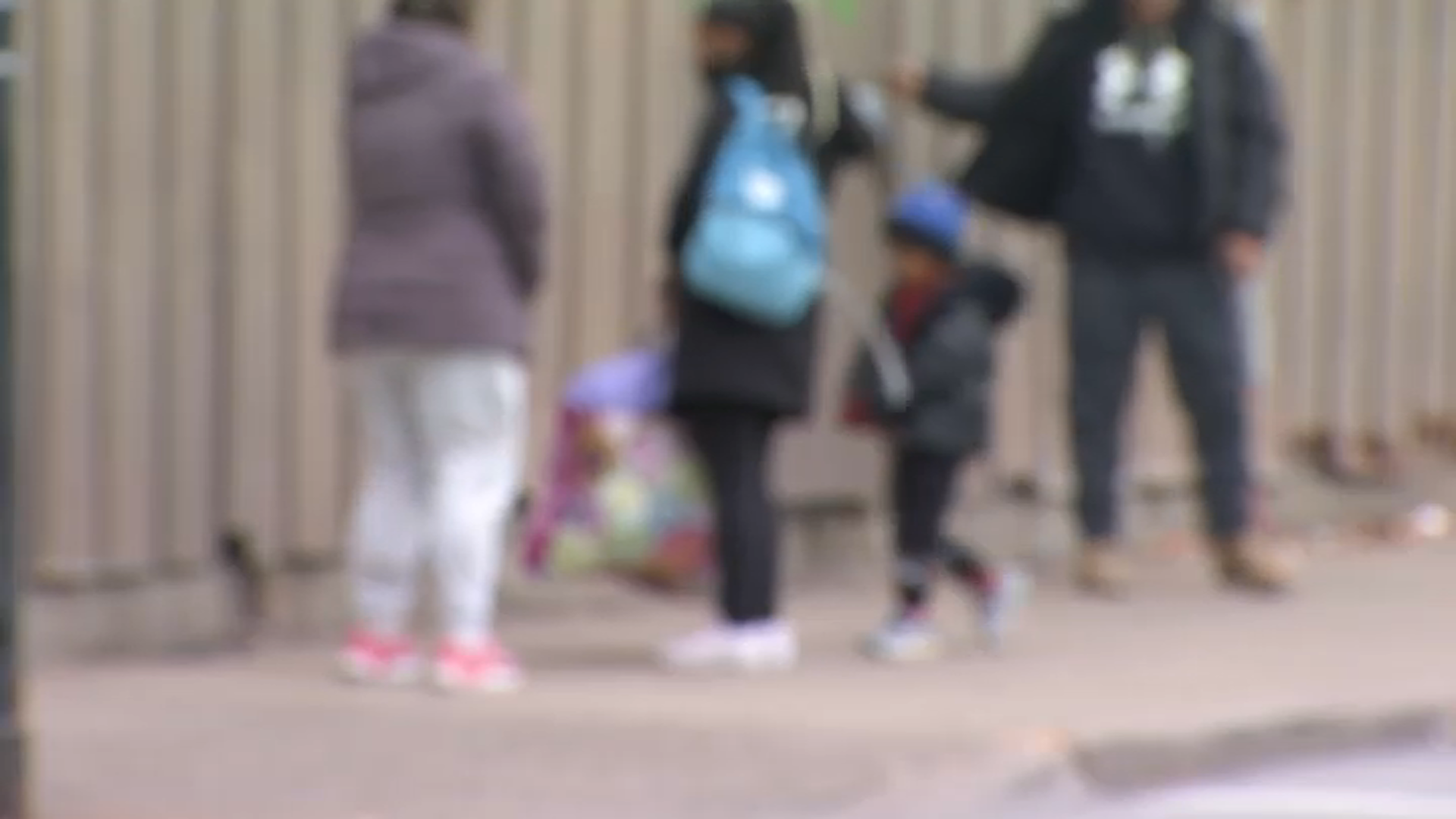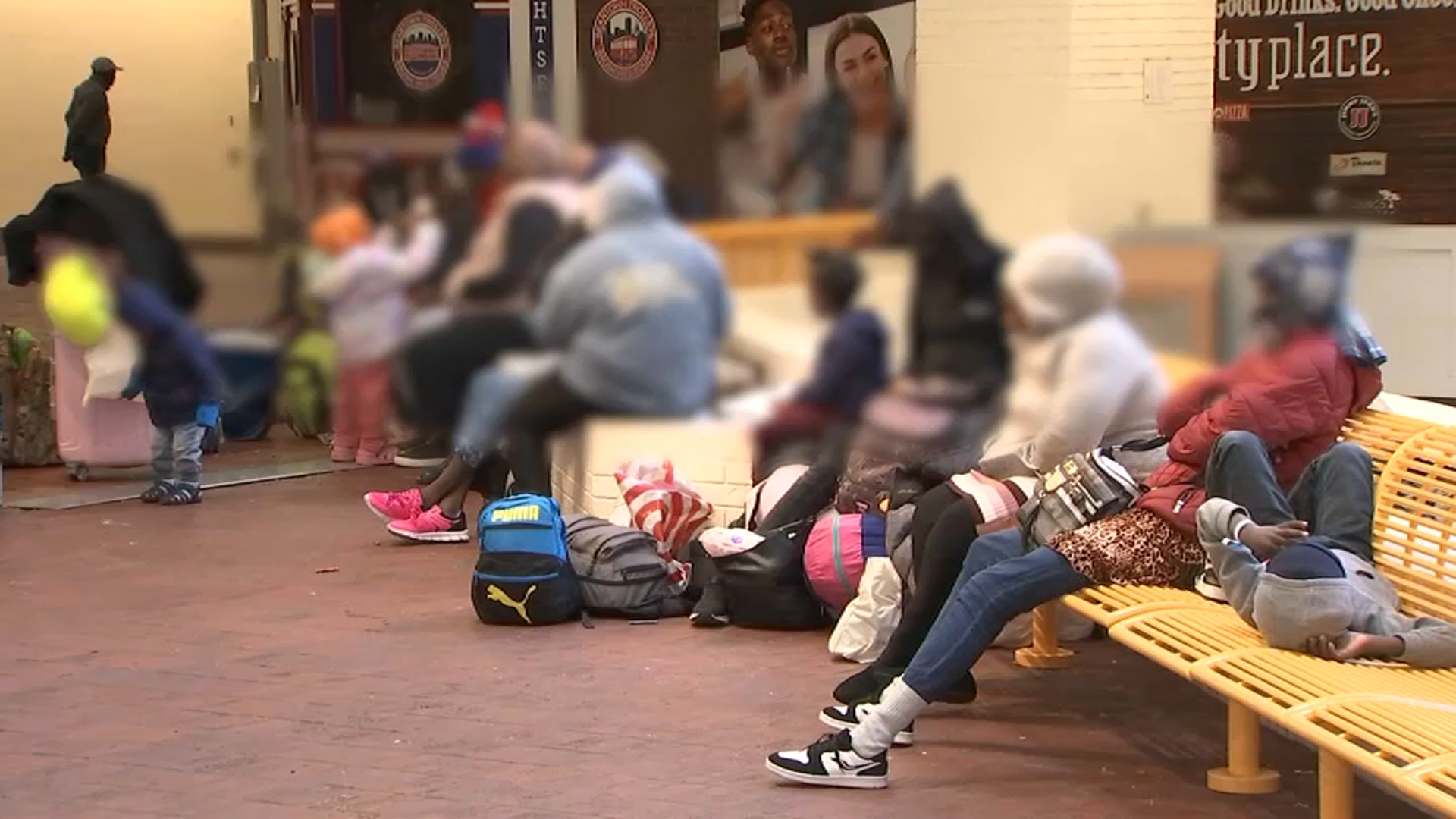Despite a City of Chicago website dedicated to tracking how nearly $300 million was spent on the migrant crisis, many aspects of the migrant crisis remain shrouded in secrecy – most notably how migrant shelter sites are selected and how much building owners are profiting off the migrant crisis.
Those details remain largely hidden from the public, in part because of how the City of Chicago structured its migrant operation – by outsourcing much of the staffing and operations work to private companies.
Kansas-based Favorite Healthcare Staffing, which holds the contract to staff the city’s migrant shelters, has been paid more than $206 million to date, according to city records.
The high cost of Favorite’s contracts has drawn public ire and criticism from city aldermen.
Another $45 million was paid to Louisville, Kentucky-based Equitable Social Solutions, which the city says helps identify and facilitate which shelters are selected through the help of another company, Chicago-based Reloshare.
But hidden from public view on the website created by Mayor Brandon Johnson’s administration are details about how much those companies make in profit, what the lease agreements look like for developers and building owners whose buildings have been converted into migrant shelters.
"I think it’s a bit more translucent than transparent. You get some information but not the full picture," said 40th Ward Ald. Andre Vasquez, who also chairs the city council’s migrant committee.
Through a series of Freedom of Information Act requests, NBC 5 Investigates sought to better understand where those dollars are flowing.
The bed rates help illustrate how lucrative the use of a building could be as a migrant shelter.
Feeling out of the loop? We'll catch you up on the Chicago news you need to know. Sign up for the weekly Chicago Catch-Up newsletter.
At the city’s largest shelter in Pilsen, housing 2,300 migrants cost city taxpayers $38,000 for a single night, according to invoices obtained and reviewed by NBC 5 Investigates. That equates to $280,000 a week or more than $2.5 million over the course of three months.
Over a similar three-month period last fall, the Ogden shelter cost taxpayers $1.8 million.
And at the Inn of Chicago, which at one time provided 1,500 beds, the cost was $344,626 per week. The bed rate for one year at the former hotel would generate $17 million, according to a NBC 5 Investigates’ analysis.
It’s difficult to say how the money was divided up. Equitable Social Solutions referred our questions back to the City of Chicago.
The property owners for the city’s largest and most expensive shelters either did not return our calls seeking comments or declined to be interviewed.
Reloshare sent us a lengthy statement that did not address our questions directly.
Here is that statement:
"ReloShare’s mission is to bring safety and security to populations with an urgent need that are often overlooked. In partnership with hundreds of social service and government agencies, including in the city of Chicago, ReloShare has served as a necessary conduit connecting vulnerable individuals and families with secure living conditions, often during the most challenging periods of their lives. With safety and security at the forefront, the company designs its operations and business practices exclusively to achieve the goal of providing these services effectively, at a pace and volume that match the gravity of the moment."
A spokesman for Reloshare did not respond to our follow-up questions asking to describe in detail how sites are selected and what the lease agreements involve.
Through a series of Freedom of Information Act requests, NBC 5 Investigates asked for copies of leases for the 27 shelters the city operated.
We received just nine lease agreements.
Those missing included the lease agreements for the city’s largest and most expensive shelters, including the Halsted shelter and the one located at the Inn of Chicago.
"You should not have to go through the hoops that you've gone through just to get through, get to partial information," said Chicago’s former Inspector General Joe Ferguson, who is now with the Civic Federation, a non-partisan government research group. "We absolutely should know at every step of the way, where the public's money is going to so that we can make an assessment as to whether or not it is being used well."
Ald. Vasquez said even aldermen have had a hard time accounting for how these dollars have been spent.
"So I think something that we've been looking at is how to really get more mandated reporting from the government as they're making decisions, because our constituents are asking us those very questions," Vasquez told NBC 5 Investigates.
Randy Shifrin told NBC 5 Investigates he offered up a vacant building on South Michigan Avenue to the City of Chicago last fall.
Shifrin said the city considered it but abruptly canceled while en route to look at the property.
"They made a date to come view the building, and at the very last date they were called back. They were told do not do it. They just canceled last second," he said.
NBC 5 Investigates asked the city’s Department of Family and Support Services and the Office of Emergency Management and Communications about this potential site. We have not received a response.
During last week’s post-city council news conference, Mayor Johnson pushed back on recent reporting from the Chicago Sun-Times that reported the Johnson administration did not take up offers from the Archdiocese of Chicago to provide potential shelter sites for migrants, telling reporters the city is working with the Archdiocese to bring one shelter online.
"But it’s not just as simple as 'here’s a building; take it.' There’s work that has to be done to make it suitable," Johnson said.
Johnson side-stepped questions from NBC 5 Investigates about whether he would support or be in favor of additional documents to the city's migrant spending website. He deflected to Brandi Knazze, the commissioner for the Department of Family and Support Services, who explained that most of the lease agreements were brokered with Equitable Social Solutions.
When pressed again if he would support more calls for more transparency, Johnson said: "Thank you for that question. Again, we are meeting you right where you are."



